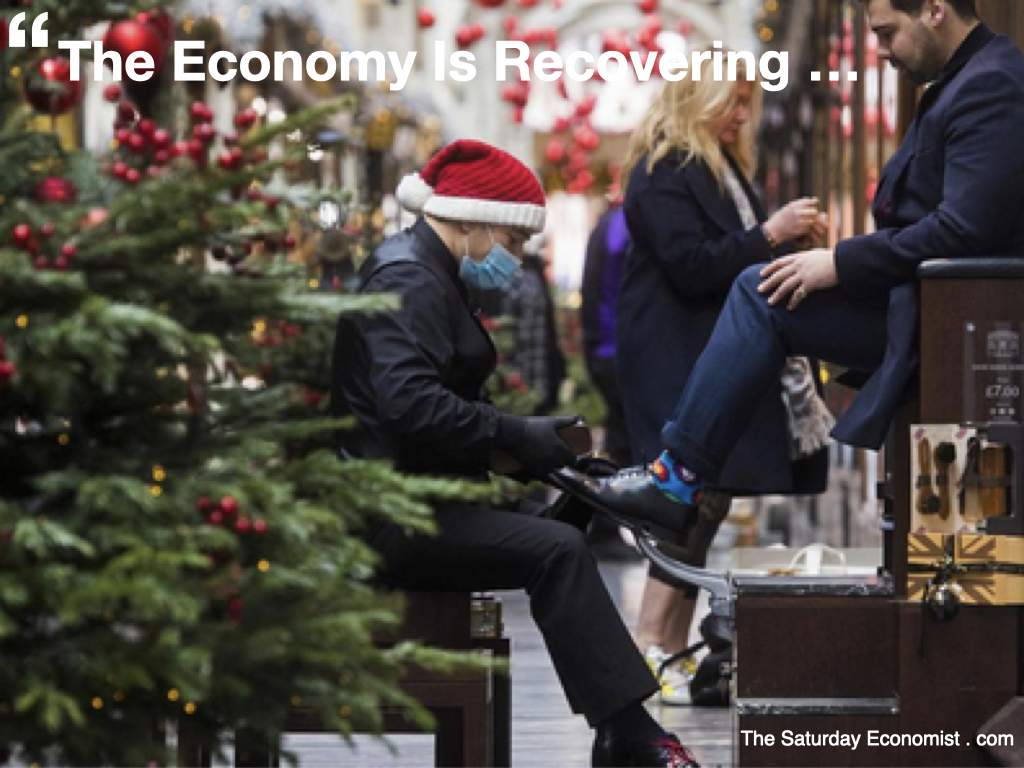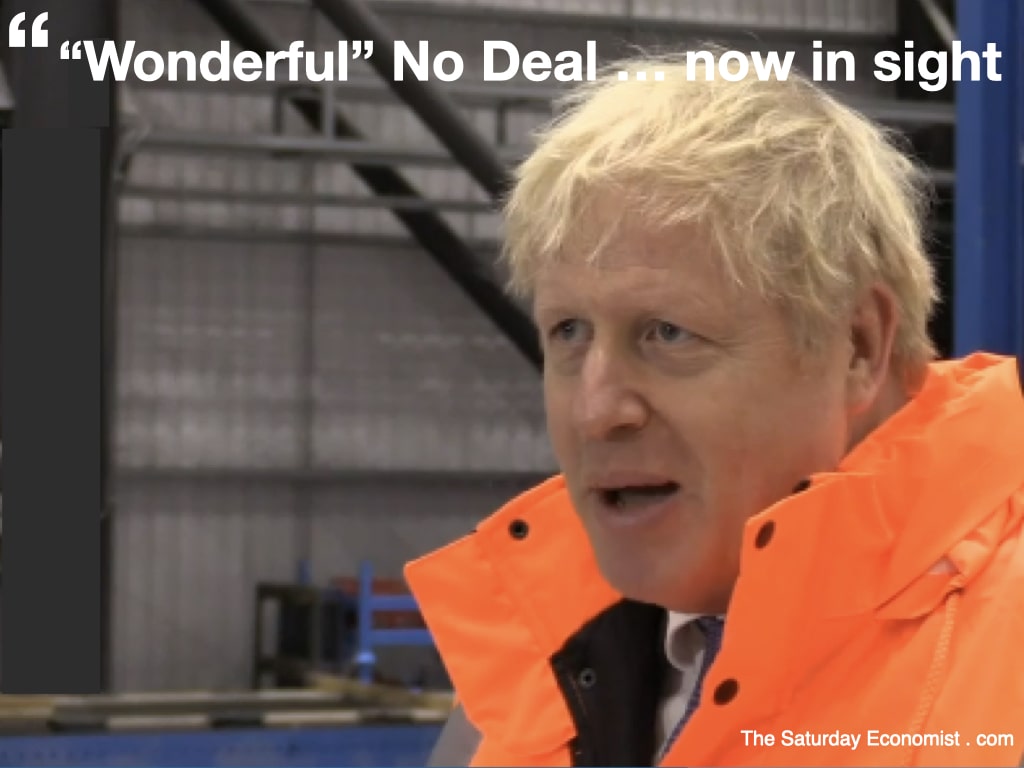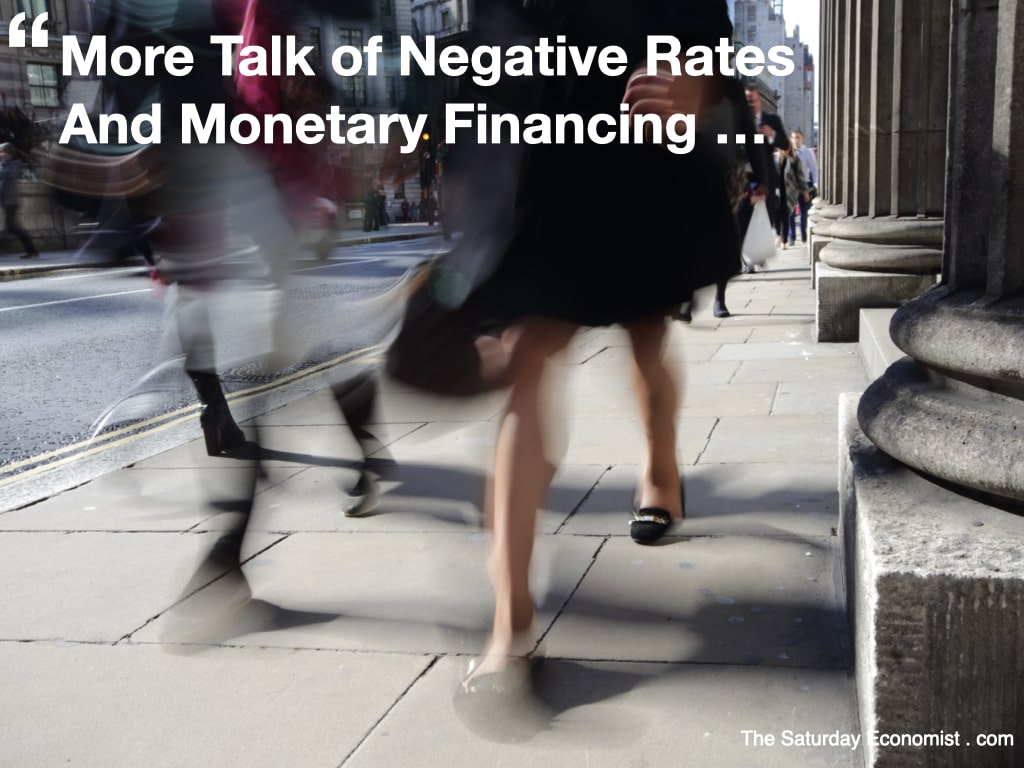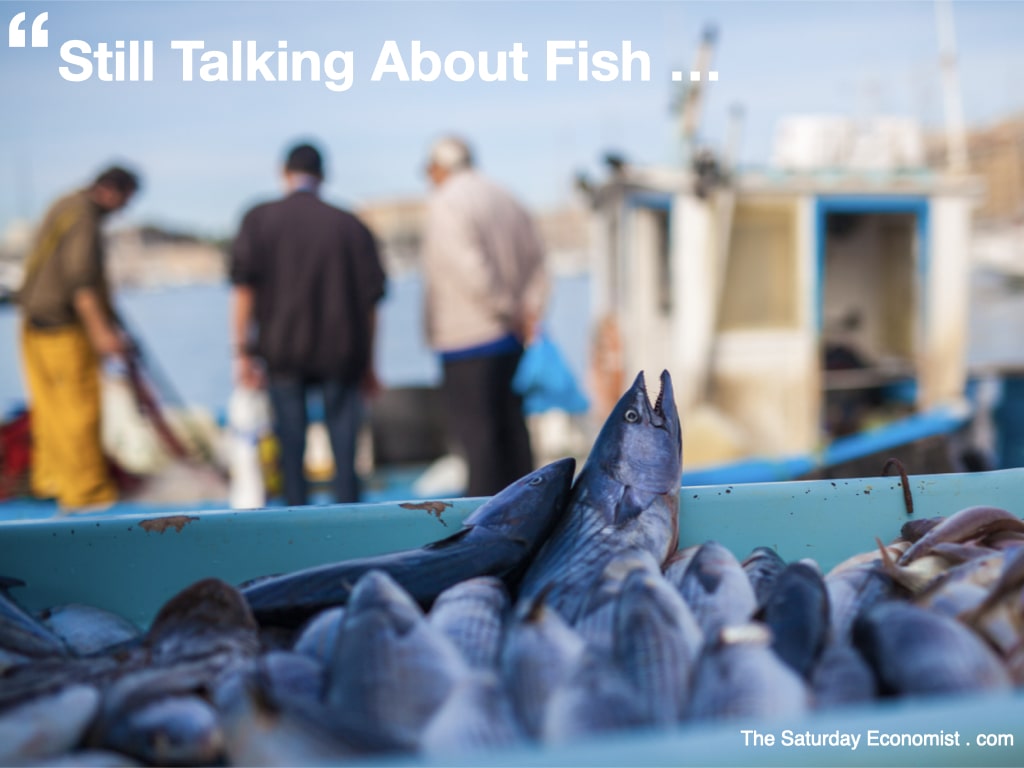|
This will be our last update of 2020. Mary and I wanted to take this opportunity to wish you a Merry Christmas and Happy New Year. We will be taking a break for a few weeks. We plan to be back from the 9th of January.
So difficult not to have seen so many friends through the year. It really has been a quite extraordinary period. Let's hope things may return to some semblance of normality in 2021. I wish all of you and your loved ones, every best wish for the year ahead. This is our tenth year publishing The Saturday Economist. It has been a year of progress and expansion. We have extended our social media coverage, with weekly updates on Facebook and LinkedIn. Since launch we have had over 600,000 views on LinkedIn. Our daily "What The Papers Say" Review on Twitter, covers titles in Europe, the USA and South East Asia. We launched our The Saturday Economist Live, Podcast at the end of September, now available on eight platforms. We plan to expand the coverage through next year. This month we are releasing the Beta version of our GR "Chat Room". If you have any questions, queries or comments just click on the link and we will get back to you. Check it out. This is the year of the Webinar. We have expanded our studio facilities using Zoom and Ecamm Live to improve our on line client presentations. We will be boosting content to our movie channel, relaunching our Guild Group in January. Plus we intend to increase our coverage of financial markets. Lots of great things planned for 2021. It is always great to keep in touch and we welcome feedback and comment ...
0 Comments
Forecasts are for UK GDP to have fallen by around 10% this year. The unemployment rate is expected to end the year at around 5%. Government borrowing will have increased to £400 billion during the financial year. The Bank of England has stepped up as the buyer of last resort. The process of monetary financing of the fiscal deficit is in play.
Central bankers in Europe, the USA, Japan and the UK, are in on the process. The Fed balance sheet has expanded to over $7 trillion dollars from less than $4 billion prior to the crisis. This week the Bank of England MPC voted to maintain the target of gilt purchases at just under £1 trillion for the moment. Most analysts expect UK growth in 2021 to be 5.5% with a peak in unemployment in the second quarter at around 6.5%. Government borrowing in the next financial year is likely to be around £200 billion. The Chancellor suggest the borrowing cannot be sustained at present levels, then announced an extension of the furlough scheme to the end of April next year ... Boris Johnson admitted yesterday, things are looking difficult in discussions with the EU. The "door is open and we will keep talking" said the Prime Minister. French fishermen are in fighting mood. UK lorry drivers will be unable to take a ham sandwich across the channel. The Pound closed up at $1.35. Ten year gilts closed up to 25 basis points. In the US, the Dow, S&P and Nasdaq closed up. The S&P PE tracked 37.1 compared to a long run average of 19.5. Bitcoin closed at $22,973, Ripple and Ethereum missed out on the crypto rally. Is anyone beginning to thing Tesla is overvalued? Jumping to $695. The stock trades on a PE of 1400 with a market cap of over $600 billion. Ford and GM have market cap of $35 billion and $58 billion respectively. Add in Boeing and the trio add up to a combined cap of $200 billion. So what of market prospects in the year ahead? Markets are in bullish mode, looking through the pandemic to a recovery, supported by large scale vaccine distribution. Asset prices are pushed higher by central bank largesse and the search for yield. Traders have their favourites. For gold the test of $2,000 was too much. Some suggest $400,000 is the bitcoin bounce. More than ever it is important to remember analysis, analysis, analysis is key. Capital, liquidity, profitability and diversification the platform. Hence our plans for more focus in markets in the year ahead ...don't miss that! That's all for this week Have a great safe holiday and New Year ... A no-deal Brexit would be "wonderful for Britain", explained the Prime Minister, yesterday. We are leaving with a no-deal on WTO terms, unless a breakthrough is achieved, within days.
Aussie rules no longer OK. Boris Johnson made no reference to an "Australian" deal. Former Prime Minister Malcolm Turnbull had warned the PM to be careful "what you wish for". "It will be pretty disappointing, I think you will find out. Australia's relationship with the EU, is not one that Britain would want." It is not one that Australia wants either but it may well be the one we end up with. The navy has been put on standby to board foreign fishing boats and make arrests, if French transgressions arise in the New Year. Four patrol ships are to be deployed, with Royal Marine helicopters, ready to offer, abseil assist. France has over 80% of the cod quota in the channel. Twenty-two frigates were deployed in the last cod war with Iceland. Now we can better understand, perhaps, why the Prime Minister is planning to build the largest navy in Europe. "President Macron explained, "I am not asking to have my cake and eat it. All I want is a cake, that's worth its weight (in cake), because I won't give up my share (of the cake)". Prime Minister Johnson explained, the EU want us to behave like twins. "They get a haircut, we have to get a haircut. They buy an expensive handbag, we have to buy an expensive handbag." Working in international trade we are always conditioned to avoid idioms and similes. It just leads to puzzled looks and confused stares. No wonder the negotiations have been dragging on and on. Meet the French demands, let them eat cake and salted cod from the Baltics. Boris Johnson should have the confidence to understand he does not have to get a haircut, just rearrange the bits he has got. If he doesn't want to buy a handbag, he will have to use some other object to swing at Johnny Foreigner. Camiilla Cavendish writing in the Times today suggests "the Tories have fallen prey to magical thinking. Hard trade-offs, are wished away, without a clear vision for prosperity if there is no deal". Matthew Parris in the Times claims the cabinet "don't actually believe in a painless Brexit or the sunlit future they have promised to deliver." The evidence is mounting of the problems ahead. Bank shares have taken a battering. Supermarkets face a £3 billion shock to prices. Bottlenecks at the ports. Honda called a halt to production this week, as just in time deliveries didn't make it on time. The car industry will produce less than one million cars this year. 1.7 million were manufactured in 2016, the year of the vote to leave the EU. Toyota has warned there will be no build of electric vehicles in the UK until 2034. Any decision dependent on the outcome of trade talks (and the success of direct shipments from Japan). Liz Truss this week announced the decision to slash tariffs on the US products. EU tariffs had been imposed on ketchup and orange juice. The move designed to ease the way for a reduction in the US tariffs on Scotch Whisky. The move is guaranteed to alienate the Airbus lobby group in Europe. The measures had been imposed in response to unfair subsidies to Boeing in the USA. Great timing. One day those Airbus wings will just fly away. Motor and aerospace, farming and pharma, just some of the industries facing severe challenge and setback in the event of a "wonderful" no deal. The Prime Minister may believe we will be free "to do whatever we want, any old time" but in reality the options will be severely limited ... "You can't always get what you want ... "Going Negative Could Be Positive" writes Philip Aldrick in the Times today. The economics editor has been talking with Michael Saunders, an external member of the Monetary Policy Committee at the Bank of England.
Rates could be cut a little below zero, the former Citigroup economist explained, as long as "appropriate mitigations" are in place. The Bank has asked commercial lenders to ensure they are systems ready for a move below the line. Bankers have warned, negative rates could hit profits and create operational problems. Not so argues Saunders, "studies have shown, the net effect of negative rates on bank profitability is small and may be slightly positive." Negative rates rates could increase economic growth and reduce the impact of bad debts as the economy expands, it is said. "Studies which allow for these indirect effects suggest the net effect on bank profitability is small and may even be slightly positive." Well of course it is. The model used is a tautology. Model in sufficient growth with a fall in defaults and bank profitability will rise. No wonder Andrew Bailey Governor of the Bank if England is slow to make the move. Stuck on Planet ZIRP, we should avoid the drift towards the NIRP crevasse. The Governor has already abandoned the pretense of QE. The minutes of the MPC committee in June, reveal the committee voted to increase the stock of UK government bonds "financed by the creation of central bank reserves. Last month Andy Haldane Chief Economist at the Bank of England, delivered a speech entitled “What Has Central Bank Independence Ever Done For Us? An appropriate attribution to Monty Python, with a hint of satire, he explained, the Bank of England creates a high level of central bank reserves to acquire government gilts. “This is process is not a monetary financing of government deficits. It is a reflection of both policies [monetary and fiscal] responding counter-cyclically, as they should, in the face of a very large cyclical shock to aggregate activity.” Ah ... Central Bank Reserves have now increased to almost 50% of GDP. This is not officially “Monetary Financing of Fiscal Deficits” or “Fiscal Dominance”. It sure looks like it. We call it Dire Straits Economics, that’s “Money For Nothing, Gilts For Free”. No need to compound the challenge and take the risk of a move to negative rates ... Note Fiscal dominance is an economic condition that occurs when a country has a large government debt and deficit such that monetary policy targets keeping the government from bankruptcy rather than macro-economic targets such as inflation, growth and jobs. Less than four weeks to go to the new deal deadline and we are still talking about fish. "France derails Brexit talks", the headline in the Times today.
Macron has thrown a mackerel into the net demanding access to UK waters for up to a decade after the transition period. He may have well sent a gunboat up the Thames, the impact. Discussions were suspended, Bernier went back to Paris. Boris Johnson will hold emergency talks with Ursula Van Der Leyen, President of the European Commission. A spokesman said "Time is in very short supply" We even have a video which explains the clock is ticking, that's "Les heures tournent et pas doucement" in French. "We are at a difficult point in the talks. We will not be able to agree a deal which does not respect the fundamental principles on sovereignty, fishing and control". Yes taking back control always included the fish. Matthew Flynn writing in the Telegraph today, suggests there is something fishy about the French threat to veto the trade bill. President Macron may well have calculated that a no deal may be bad for the EU but could be a very good outcome for France. The trade surplus with the UK is quite small at around £ 5 billion a year. Paris would be the main beneficiary of disruption to London as the financial services capital of Europe. The UK and France are close competitors in the race for inward investment. Sitting in the Elysee Palace Macron may well think France would be a winner from a no deal. But then again he would lose the fish and would have a tremendous problem with cheese. Let's hope the Prime Minister can smile and work his charm on the President of the Commission. All sides need an agreement, time for a common language, time is running out, the hours are turning ... That's all for this week! Have a great, safe, week-end ... Hands, Face and Space ... |
The Saturday EconomistAuthorJohn Ashcroft publishes the Saturday Economist. Join the mailing list for updates on the UK and World Economy. Archives
July 2024
Categories
All
|
| The Saturday Economist |
The material is based upon information which we consider to be reliable but we do not represent that it is accurate or complete and it should not be relied upon as such. We accept no liability for errors, or omissions of opinion or fact. In particular, no reliance should be placed on the comments on trends in financial markets. The presentation should not be construed as the giving of investment advice.
|
The Saturday Economist, weekly updates on the UK economy.
Sign Up Now! Stay Up To Date! | Privacy Policy | Terms and Conditions | |





 RSS Feed
RSS Feed